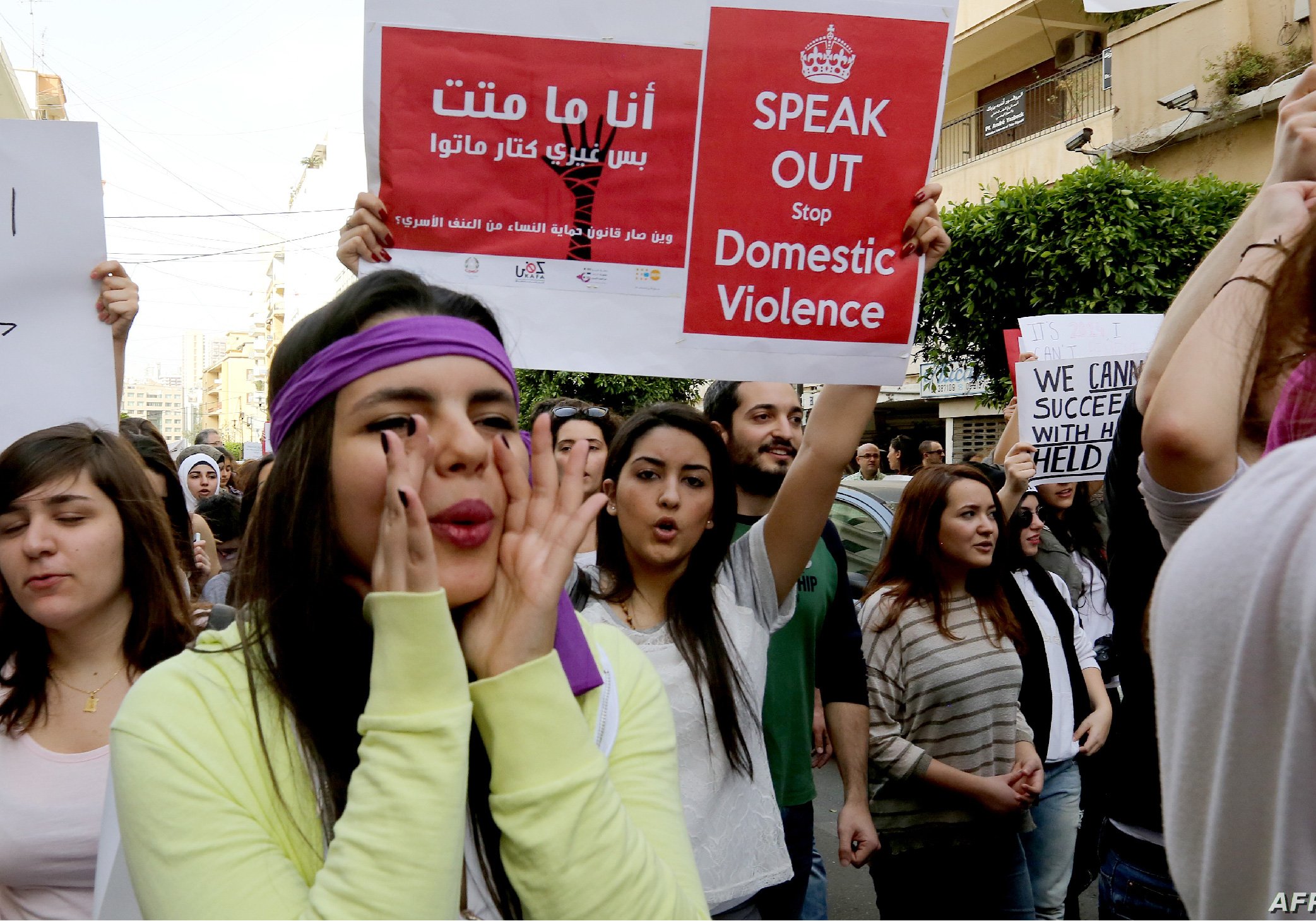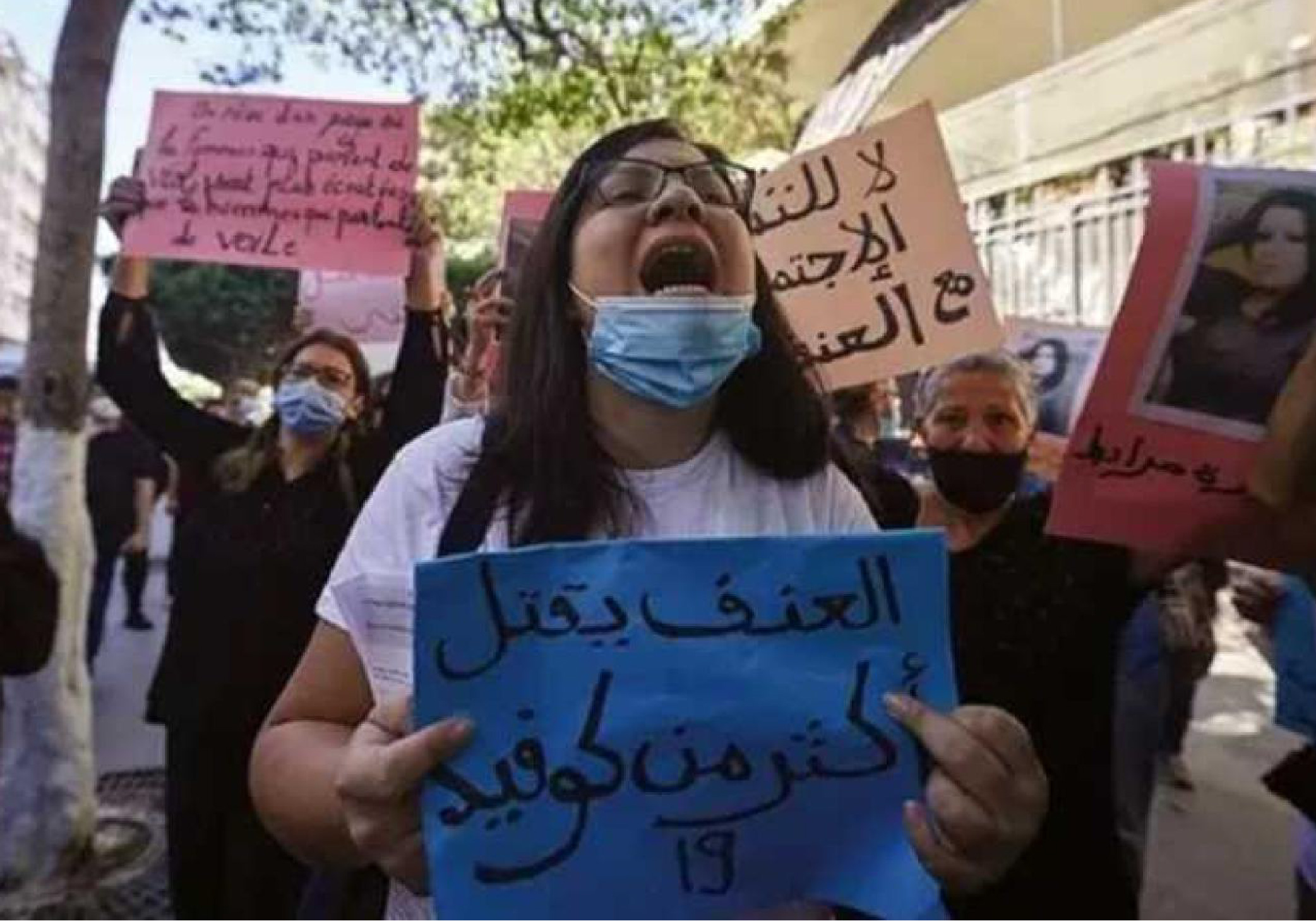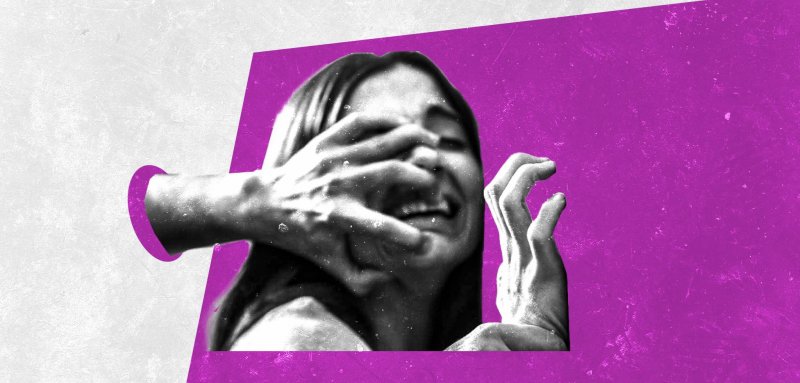"A woman is desire and motherhood, and she is a heaven on earth. A woman is life", with these words, Algerian writer Kamal Daoud expressed his appreciation for women in a television interview with Giselle Khouri last year.
The irony is that Kamal Daoud, a man who proclaims to love women and recognize their value, a renowned author and winner of the prestigious French Prix Goncourt Prize, was sentenced to imprisonment for intentionally beating and injuring his ex-wife with a bladed weapon!
There are many like Kamal Daoud in Algeria, and there are also many women like his ex-wife. According to statistics from Algerian security services, 1,404 women were victims of domestic violence by their husbands in 2022. However, women's associations in Algeria believe that these numbers do not reflect the reality, as a significant number of women do not report the perpetrators due to their relationship or out of fear of further violence and retaliation.

Terrifying numbers
"The killing of women is a crime ignored by the law," begins Amal Hajjaj, founder of the Algerian Feminist Newspaper, in her conversation with Raseef22. She says, "Silence is an accomplice to the crime, from all parties, whether it's from official institutions, public entities, or from society and the mentalities and practices of individuals. For years, we have been condemning this phenomenon. We need a radical solution to eliminate the violence. We will not achieve real protection unless we focus on education."
Furthermore, women's organizations have revealed that the rate of violence against women has multiplied by five recently due to the COVID-19 pandemic. Wissal Association for Women and Children, for example, received nearly ten calls per day from abused women during the lockdown. The center's director stated, "We witnessed a difficult period during the COVID-19 pandemic, which may be attributed to the worsening financial crisis and everyone being confined to their homes."
Amnesty International had tweeted in the same context, stating that distress calls in 2020 increased due to domestic violence during the lockdown periods caused by the Covid pandemic in Algeria. They called on the authorities to address the issue of discrimination against women in the law. The Femicide Watch Platform in Algeria also recorded the killing of 38 women in 2022.
The announced figures revealed that the rate of violence against women in Algeria has recently multiplied by five compared to previous years
In a previous open letter, Algerian women's associations and human rights activists proposed urgent and effective solutions to combat violence, prevent femicides, and implement effective legal measures against violence. These solutions include "providing an accurate definition when considering criminal practices of rape and violence, enacting provisions to protect witnesses from the risks of arbitrary retaliatory acts, issuing a comprehensive law to combat violence against women, and repealing Article 326 of the Penal Code, which allows rapists to escape punishment if they marry their victims."
This is also echoed by the EuroMed Human Rights Network, as it published in a previous report that "the Algerian penal code, which was amended in 2015, contains misleading aspects that allow the subjugation of women. The 'condition of pardon' clause allows the perpetrator to evade criminal prosecution when officially forgiven by the victim before the courts. Consequently, Algerian women who are victims of murder are left to face their fate gradually due to the lack of national legal protection from potential aggressors."
Women's associations, activists, and civil society actors have presented an advocacy project to criminalize the phenomenon of "femicide", or the killing of women in Algeria, in March 2023, recognizing it as a crime on the basis of gender in the Penal Code.
Iman is a victim of Article 66 of the Family Law, as her ex-husband took custody of the child after her remarriage, "I suffered a nervous breakdown. My son became very attached to his father and stopped caring about me. This unfair law deprived me of my son"
The law does not know fairness
For years, Algerian women's associations and activists have been working to change several laws they consider unjust towards women, with the Family Law being the primary target as it is seen as a perpetuation of male dominance, a violation of the principle of citizenship, and contradictory to the spirit of the Algerian constitution that upholds gender equality, particularly Article 66, which deprives divorced mothers of custody rights if they remarry and grants custody to the father, even if he is already married.
CIDDEF, an organization for equality, advocates for the abolition of this article, and human rights activist and President of the Foundation for Equality in Algeria, Nadia Ait Zai says that the provisions of the current law are a source of violence against women. She states, "We are working to change this article because there are women who have been assaulted by their former spouses after they remarried. There are husbands who do not care about their children at all, but when a woman decides to remarry, he seeks revenge and deprives her of her children. Others live a life full of pressure and anxiety because they are trying to keep the news of their remarriage hidden."
"The killing of women is a crime ignored by the law. Silence from all parties is an accomplice to the crime, whether from official public institutions, society or individuals' mentalities and practices. We need a radical solution to eliminate the violence"
Iman, a housewife and mother of two children, is a victim of Article 66 of the Family Law, as her ex-husband took custody of the child after her remarriage. She tells Raseef22, "I fell into a deep spiral and suffered a nervous breakdown. My father did not allow me to appeal the decision, saying it was a losing case. Even my second husband did not stand by my side. After the birth of my second son, he accused me of not being fair between my two sons. My first son became very attached to his father and stopped caring about me. I also noticed strange behavior from him indicating that he had been subjected to rape. I went to the police station to file a complaint, and they accused me of seeking to accuse my ex-husband just to strip him of custody. This unfair law deprived me of my son; he no longer cares about me. His father did not comply with the judge's recommendations to be fair and not deprive the child of his mother."
While divorced women face the possibility of losing custody of their children if they remarry, married women are not even entitled to obtain a passport or open a bank account for their children without authorization from the father. "I believe that joint guardianship and custody with the man is necessary. What is happening is not fair. He is my son too, and I want full and undiminished rights," says Najwa, a mother and a women's rights activist.

Shaima, 19, was raped and burned alive by her harasser. Even more painful than the crime were the public's reactions condemning the victim instead of the perpetrator, with words like: "Surely she did something, he wouldn't kill her like this for no reason"
Endless condemnation
In an abandoned fuel station, in October 2020, the young woman, Shaima (19 years old) was found a charred corpse at the entrance of the city of Thénia in Boumerdès.
Shaima was raped and killed by a man who has been formerly accused of harassment. The painful fact of the matter is that she had previously filed a complaint against the perpetrator for attempted rape in 2016, and he was imprisoned as a result. However, he sought revenge against her after his release from prison and raped her before burning her body!
Even more painful than the crime itself are the reactions of the public in Algeria, which has not ceased to condemn her, the victim, instead of the perpetrator, with phrases like:
"She is not respectable. She probably dressed indecently."
"Why was she out at night?"
"Surely she did something, he didn't kill her like this for no reason."
"It seems he's mentally ill, so nothing to worry about."
Amidst all these unwarranted and condemning statements, Algerian women find themselves trapped between laws that do not protect them and a society that justifies violence and crimes against them!
Raseef22 is a not for profit entity. Our focus is on quality journalism. Every contribution to the NasRaseef membership goes directly towards journalism production. We stand independent, not accepting corporate sponsorships, sponsored content or political funding.
Support our mission to keep Raseef22 available to all readers by clicking here!
Interested in writing with us? Check our pitch process here!









